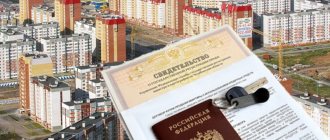In most cases, privatization of an apartment without the permission of one of the residents is impossible. According to the law, before submitting an application for privatization, it is necessary to obtain a refusal or consent from all residents. If at least one of them protests, the apartment will have to be privatized through the courts.
However, you can try to resolve the issue amicably, without litigation. Let's figure out how to get out of a difficult situation.
Is it possible to register a room in a communal apartment as your own?
A communal apartment is a housing unit in which several families live on the basis of a social tenancy agreement.
Relatively recently, it was almost impossible to privatize a separate room in municipal property. This is explained by the fact that in this situation there is a high probability of cases where both owners and tenants will live in the same apartment. Such situations lead to difficulties in regulating relations between residents.
Much has changed since then: today, registration of ownership of part of a residential premises is available to everyone . Issues of this nature are regulated by the Law of the Russian Federation “On the privatization of housing stock in the Russian Federation”, Resolution of the Constitutional Court of the Russian Federation dated November 3, 1998 N 25-P and other regulatory legal acts.
Before starting the process of transforming the form of ownership of housing, the initiator of such a procedure needs to make sure that it can be the object of privatization. According to Art. 4 of the Law of the Russian Federation No. 1541-1, the following cannot be transferred into the ownership of citizens:
- dorm rooms;
- apartments that are recognized as unfit for living (commission conclusions);
- office premises;
- housing in certain sectors (military camps, gated communities, as well as in environmental and conservation areas).
Exceptions
An exception to the general rule are minors. They have every right to participate in privatization twice - once before reaching adulthood and a second time after reaching adulthood. This also includes persons who, for some reason, lost their housing due to circumstances beyond their control.
Example: Residents privatized an apartment. After some time, a natural disaster struck the region where they lived. Let's say there was an earthquake, as a result of which a house and apartment were destroyed. The state is obliged to compensate for losses incurred, provide municipal housing and restore the right to privatize it. As a result, residents can go through the procedure again and register ownership of the apartment again.
Who is considered an adult
Adults mean:
- People over 18 years of age.
- People who entered official work before turning 18.
- People who got married before the age of 18.
Who has the right to privatize real estate?
Only citizens of the Russian Federation who legally (permanent registration is required) live in a residential building can privatize a room (apartment) of state or municipal property. Restrictions:
- temporary residents, as well as living relatives of those who are considered tenants, do not have the right to privatize living space;
- It is possible to register ownership only for that part of the apartment that is indicated in the relevant documents or in equal parts, when the area of the living space is divided between the residents during the procedure.
Children who have not reached the age of majority at the time of privatization become participants in this process on an equal basis with adults.
REFERENCE ! The right to free privatization of housing is given to citizens once, except in cases where a minor has become a participant in such a procedure and, upon reaching 18 years of age, wishes to independently exercise this right.
In accordance with Federal Law No. 14-FZ dated February 22, 2017, free privatization of residential premises is unlimited. Time restrictions have been removed by this law.
What kind of housing cannot be privatized?
Not all housing stock that is not the personal property of citizens participates in privatization programs.
Housing that does not belong to the state or municipal housing stock cannot be transferred into personal ownership. Such real estate objects include :
- official and departmental housing of enterprises, organizations, etc.,
- premises in military camps ,
- premises in existing dormitories (work or educational).
It is also impossible to privatize real estate in buildings that are in disrepair or are being prepared for demolition.
Is the consent of all registered persons required?
Is it possible to privatize an apartment without the consent of one registered person? The main condition for exercising the right to privatize property is the consent of all living and registered residents in the apartment. If agreement cannot be reached, such a process is impossible. Participation in such a procedure is a right, not an obligation. No one can force a person to receive a share in a common house .
A refusal to register property must be made in writing and subject to notarization. The transaction is considered completed if all residents have given a written agreement to carry out the privatization procedure.
One or more family members may renounce ownership rights in favor of another citizen who legally permanently resides in the apartment.
It is worth noting that if the registration of ownership rights is refused, the citizen is not evicted from the apartment .
He retains the right to lifelong residence in this living space, and even in court it is impossible to deprive him of such a privilege. Moreover, this right of the tenant is preserved in cases where an already privatized apartment becomes the property of another person.
What the law says
Every citizen of Russia has the right to privatize an apartment occupied under a social tenancy agreement. But he can do this only once in his life.
Privatization is a voluntary matter, a person has the right to live in a municipal apartment for the rest of his life under a social tenancy agreement, there are some positive aspects to this. For example, he does not pay contributions for major repairs of the house, and major repairs in the apartment are obliged to be done by the owner - the municipality. Even the court does not have the right to force him to agree to privatization.
To privatize housing, you must be registered in it. Those residents who simply live in an apartment, without registering, but having registered elsewhere, cannot privatize it. Therefore, in order to privatize an apartment, the consent of all residents officially living in it is required. If any of them refuses, then it is necessary to look for legal ways to solve this problem.
How to apply without obtaining permission: step-by-step instructions
Often, the disagreement of one of the residents becomes an obstacle to the privatization process. What to do in such situations, if written approval for the implementation of this procedure is simply necessary?
It should be said right away that there are no legal ways to solve this problem. In cases where not everyone registered agrees and, especially if one person is strongly opposed to privatization, you should be guided only by persuasion and persuasion. But in some situations you can exercise your right to privatization even without the permission of other residents.
Step-by-step instructions for registering property rights:
- Reach an agreement between all permanent residents.
- Collect all necessary documents:
- correctly completed consents and refusals of privatization collected from all residents;
- passport and its certified copy;
- an order for an apartment or a social tenancy agreement;
- technical documentation for residential premises;
- an extract from the passport office on the number of permanent residents;
- receipts for payment of utility bills for the last time (at least 3 months);
- documents containing information about the total area, diagrams of rooms, floors, balconies of a certain housing;
- data that confirms the absence of debt on utility bills and more.
- Submit the collected documents for consideration to the relevant government authorities at the location of the housing.
- Wait for the municipality's decision. In Art. 8 of the Law of the Russian Federation No. 1541-1 specifies the time limit for consideration of the provided materials, the maximum period is 2 months from the date of submission of the application and the necessary documentation.
- Register your property rights with the Federal Service for State Registration of Cadastre and Cartography, as well as obtain the appropriate documentation that confirms this fact.
ATTENTION ! If necessary, government agencies may require additional documentation.
It is worth noting that Art. 8 of Law of the Russian Federation No. 1541-1 gives the right to all citizens whose rights were violated when resolving issues of privatization of residential premises to file a claim in court to protect their interests.
If one doesn't agree
It is almost impossible to carry out the process of privatizing an apartment without the consent of one of the residents (or a room in a communal apartment without the consent of all neighbors). But, in certain cases, in court proceedings they can be deprived of this opportunity:
- In situations where there are no grounds for going to court, the opinions of those who disagree can be influenced by persuasion. It should be explained that such a procedure is completely free and after it the owners will be able to sell, bequeath, or donate a privatized plot of residential premises.
- Very often, refusals are justified by the fact that a person simply does not want to deal with the preparation of a large number of documents. In such cases, you can come to a compromise and issue a power of attorney to one of the relatives.
In case of prolonged absence of registered neighbors
You should file a lawsuit to force the removal of residents who are registered in a residential apartment, but are absent for a long time and do not live in it. In cases where the location of such neighbors is unknown, the court may recognize them as missing and, in certain cases, dead.
A court decision that has entered into legal force is considered the basis for the unhindered implementation of the right to privatize housing.
How to participate again?
If a citizen who is a minor has already become a participant in privatization (refusal of it for those under 18 years of age requires the mandatory consent of the guardianship authorities - and they, acting in the interests of children, almost never give such consent), then the procedure for him will be as follows:
- Clarify the status of housing - is its privatization acceptable?
- Determine the circle of people participating in the procedure or wishing to refuse it.
- Prepare a package of documents required by law and submit them along with the application to the municipal authority that manages the residential premises.
- Within 2 months, sign an agreement on the transfer of the apartment into the ownership of the residents. The specified time is given to the local authority to consider the application and the documents attached to it.
- Within 30 days after the agreement is signed, contact the local branch of Rosreestr or the MFC and register the resulting property right.
From the moment registration takes place and an extract from the Unified State Register with new data for the apartment is received, the procedure is completed.
IMPORTANT: Since July 2021, Rosreestr or MFC will no longer issue certificates (“green cards”), although previously valid documents can be used. Now the electronic record in the Unified State Register is enough, the presence of which, if necessary, is confirmed by an extract.
What to do if neighbors do not want to give permission?
Allocation of a share is another real way to register ownership of a home without the permission of other residents. Its essence is that anyone wishing to carry out privatization can try to carry out such a procedure only for a certain part of the apartment. Selection can be done in two ways :
- By concluding an agreement on the allocation of a share in kind, which is signed by all residents and notarized in the prescribed manner.
- Determination of the part in court. With this method, a forensic construction examination is appointed to accurately study and determine the cost of the apartment, as well as check the possibility of completing the procedure for allocating its share.
The conclusion of an agreement or a positive court decision is the basis for registration of ownership of a separate part of the residential premises. After this procedure, the BTI draws up a plan and technical passport of the premises, which indicates the privatized share. The apartment becomes communal.
Arbitrage practice
When preparing a statement of claim, you need to carefully study the initial situation. In practice, when considering a case, the court takes into account, in addition to the main evidence, the following factors:
- the financial situation and ability to work of the defendant;
- availability of alternative housing;
- technical feasibility of allocating a share.
You cannot forcibly evict without simultaneously providing other housing:
- disabled people (1st, 2nd grade);
- old age pensioners;
- family members of residents who died in the line of duty (military personnel, employees of the Ministry of Internal Affairs, etc.);
- minor children and dependents.
To resolve complex issues, they turn to explanatory documents that have legal significance. Thus, by a separate definition, the Supreme Court of the Russian Federation established the mandatory consent of all registered residents. The person who took part in the privatization must authorize the procedure. If he refuses, he cannot be forcibly evicted. The right of lifelong residence (registration) is retained.
How to make an application?
Current legislation does not provide for any special requirements for an application for consent to privatize an apartment. It is important that this is a strong-willed decision of a citizen. The application can be made either in writing or in printed form . For ease of writing, it is allowed to create forms in which residents only need to enter their data.
How to apply?
A citizen living in a specific residential area expresses his consent on a piece of paper and enters his data there. If a document is created in written form, you need to try and make the handwriting legible and understandable to other people (especially when it comes to personal data).
ATTENTION ! Any mistakes made when drawing up an application may delay the privatization procedure.
At a notary or at home?
Consent to privatization is not required to be notarized . But if the residents wish, such a document can go through this procedure. The refusal or power of attorney to register property rights must be certified by a notary in the manner prescribed by law.
Contents of the document
A correctly drawn up application for consent to privatization should consist of the following points:
- the name of the government agency to which the citizen applies;
- personal information (full name, date and year of birth, passport details, citizenship, residential address);
- direct consent to register private property (it is necessary to indicate the address, square footage, number of rooms of the residential premises);
- date and signature with transcript.
Every citizen of the Russian Federation who is registered in the manner prescribed by law has the right to privatize residential space. Lack of consent from neighbors to carry out such a procedure can significantly affect the process of registering property rights: eliminate or slow down the progress of its implementation.
Refusal from privatization
Due to the voluntary nature of the procedure, residents are not required to receive private ownership of the property. But privatization of an apartment without the consent of those registered is impossible. Possible reasons for refusal should be listed in order to obtain information about possible methods of negotiation:
- lack of time or desire to re-register;
- poor sanitary (technical) condition of the apartment;
- the need to pay for major repairs and real estate taxes after registering the property as private ownership.
Such a person retains a lifelong right to reside at this address, which is a significant encumbrance for the future disposal of real estate.
The refusal is drawn up in any form and certified at a notary office. You cannot draw up a document in favor of another person or on behalf of a minor child.
To save money, you can sign (confirm your consent to privatization) in the presence of an authorized administration employee when submitting a package of documents. Some municipalities require a notarial waiver. For a detailed study of thematic issues, it is recommended to study a special publication on our website.
For your information! Parents must obtain permission from the guardianship authorities if they are acting on behalf of the child. You can privatize an apartment only by allocating shares to all minor family members.
Finding out about privatization is easy
An appeal to a multifunctional center is another option for interaction with Rosreestr, since an appeal submitted through the MFC is then sent to the registration authority at the location of the apartment.
Visit to the MFC
Until the provisions of the law on state registration came into force, in the period 1991-1998, BTI was in charge of privatization activities. Since you can find out when the apartment was privatized from the owners, it is better to ask for this information the day before.
Unlike the Unified State Register or Rosreestr, this organization does not provide information to all citizens who apply, but only to those who have legal grounds for this. The following persons can obtain a certificate about the object:
Deprivatization
Judicial deprivatization takes place when:
- during privatization, the interests of minor citizens registered in the apartment were infringed;
- there was an excess of authority by the authorized person during the implementation of the procedure;
- the procedure was carried out illegally, and the agreement was signed under pressure on one of the interested parties;
- the participant's condition did not allow him to realize the significance of his actions at the time when privatization was carried out.
How many times can you legally participate?











